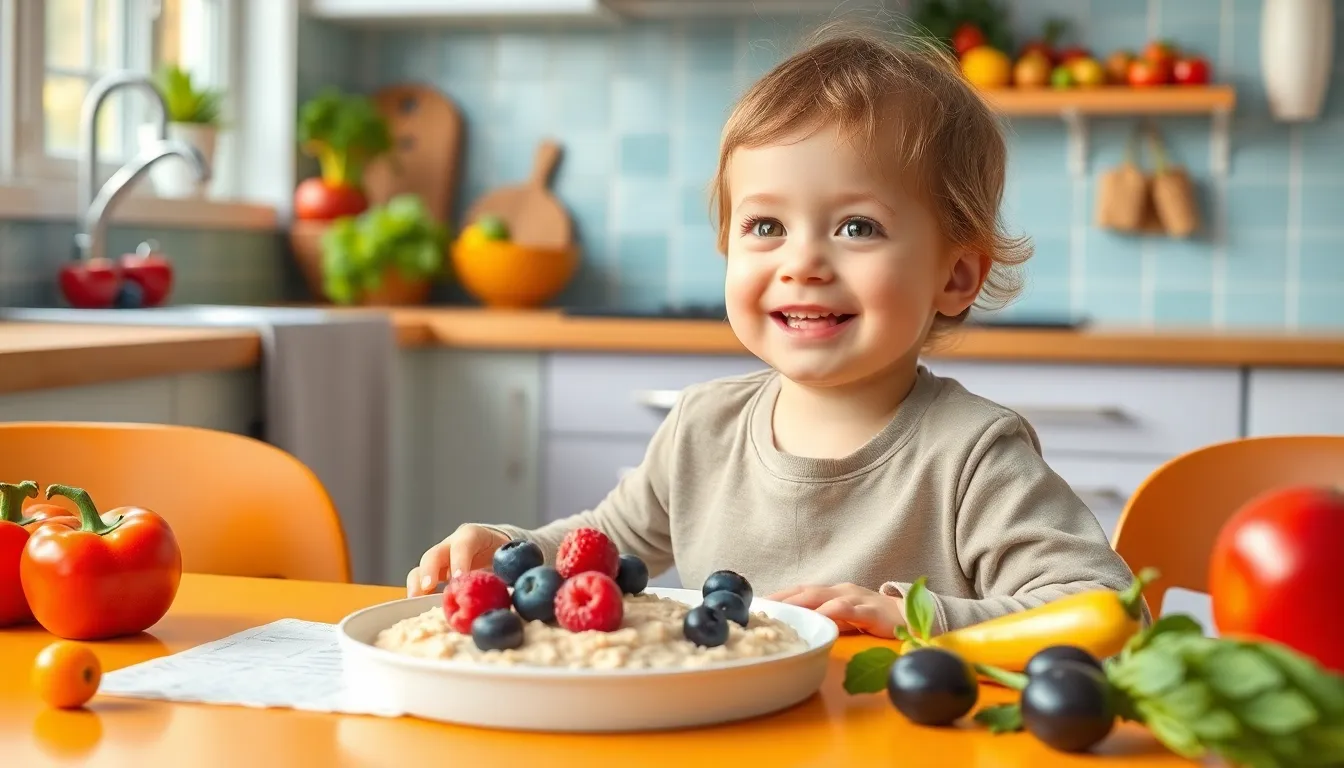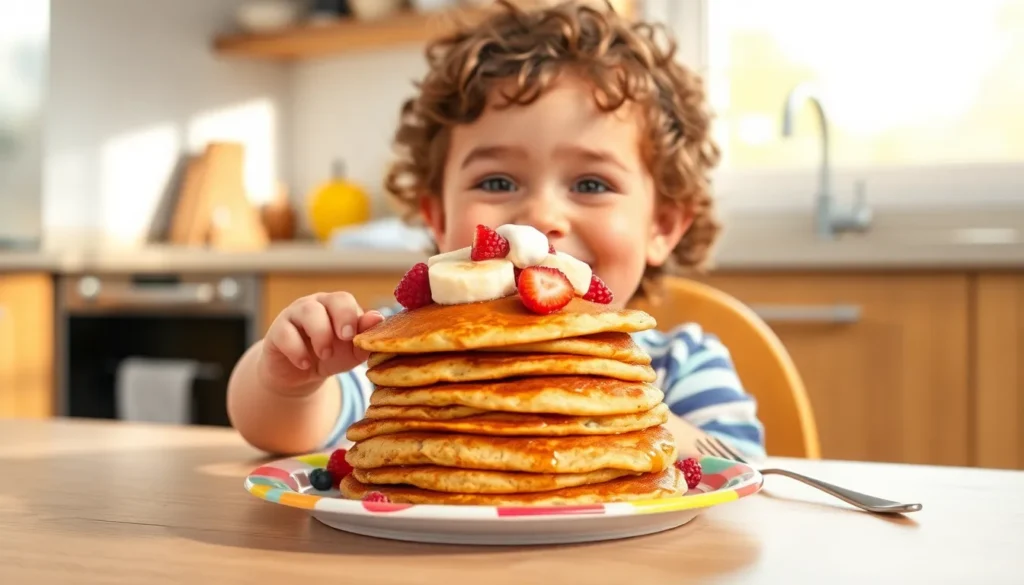Table of Contents
ToggleFeeding toddlers can feel like a high-stakes game of culinary roulette. One moment they’re devouring broccoli like it’s candy, and the next, they’re launching peas across the room like tiny green missiles. But fear not! Healthy toddler meals don’t have to be a battlefield. With a sprinkle of creativity and a dash of humor, parents can turn mealtime into a delightful adventure.
Imagine serving up colorful plates that not only nourish but also spark joy and curiosity. From vibrant veggie-packed pancakes to fun fruit kabobs, the options are endless. It’s all about making healthy eating a tasty treasure hunt rather than a chore. Dive into the world of healthy toddler meals where nutrition meets imagination, and watch those little ones gobble up goodness with giggles and grins.
Understanding Healthy Toddler Meals
Healthy toddler meals play a crucial role in their growth and development. Parents can make mealtime enjoyable by focusing on nutrition and creativity.
Nutritional Requirements for Toddlers
Toddlers require a balanced diet to support their rapid growth. Energy needs typically range from 1,000 to 1,400 calories daily, depending on age and activity level. Macronutrients should include 45-65% carbohydrates, 10-30% protein, and 25-35% healthy fats. Essential vitamins and minerals, like calcium and iron, must also be prioritized. Foods such as whole grains, fruits, and vegetables provide valuable nutrients. Daily meal plans can incorporate variety, ensuring toddlers receive adequate nutrition for their active lifestyles.
Key Food Groups to Include
Key food groups contribute to a balanced diet. Incorporating fruits and vegetables offers vitamins and minerals necessary for development. Whole grains, like oats and brown rice, provide fiber and energy. Protein sources, including lean meats, beans, and dairy, support muscle development and overall growth. Healthy fats from sources such as avocados, nuts, and fish promote brain health. Parents can build meals around these food groups, creating colorful and engaging plates that delight toddlers while meeting their nutritional needs.
Easy Healthy Toddler Meal Ideas


Offering simple, nutritious meals helps toddlers develop healthy eating habits. Below are some delightful options that make mealtime fun and nourishing.
Breakfast Options
Start mornings with oatmeal topped with fresh berries. Eggs scrambled with spinach provide an extra nutrient boost. Yogurt parfaits can feature granola and sliced bananas, offering texture and flavor. Whole grain toast topped with avocado adds healthy fats. Smoothies blending fruits, spinach, and yogurt deliver essential vitamins in a tasty format.
Lunch Suggestions
Lunch can be colorful and enticing. Veggie wraps filled with hummus and sliced cucumber supply fiber and crunch. Quinoa bowls topped with black beans and cherry tomatoes offer protein and freshness. Cheese cubes paired with whole grain crackers can strike a perfect balance between nutrients and enjoyment. Chicken salad mixed with diced apples and Greek yogurt introduces protein and sweetness.
Dinner Recipes
Dinner should remain a cozy family affair. Baked salmon served with roasted sweet potatoes and green beans packs healthy omega-3 fats. Stir-fried vegetables mixed with brown rice present a quick dish rich in vitamins. Turkey meatballs served with whole wheat pasta provide protein and satisfaction. Vegetable soup blended with beans delivers hydration and nutrients, creating a fulfilling meal option.
Tips for Preparing Healthy Toddler Meals
Preparing healthy meals for toddlers can be enjoyable and rewarding. Here are some practical ways to make it easier.
Involving Toddlers in Meal Prep
Engaging toddlers in meal preparation encourages them to explore new foods. Allowing toddlers to wash vegetables or stir ingredients fosters a sense of involvement. Parents can also invite toddlers to choose fruits and vegetables at the grocery store, boosting their excitement for meals. Introducing age-appropriate tasks, such as pouring ingredients or setting the table, reinforces participation. This hands-on experience often increases toddlers’ willingness to try different foods.
Making Healthy Choices Fun
Transforming healthy eating into a fun experience captures toddlers’ interest. Using colorful plates and arranging food into fun shapes or characters adds visual appeal. Creating “food art” with fruits and vegetables sparks creativity. Offering a variety of dips for items like veggies or whole grain crackers makes healthy options more enticing. Kids enjoy choosing from a selection of nutritious toppings for items like yogurt or oatmeal, making healthy decisions enjoyable. These playful tactics help foster a positive attitude towards nourishing meals.
Common Challenges and Solutions
Feeding toddlers presents unique challenges. Awareness of these issues helps parents navigate mealtime with ease and creativity.
Picky Eaters
Picky eaters often trial foods multiple times before accepting them. Offering small portions aids in reducing overwhelming feelings. Examples like colorful vegetable sticks or fruit slices can provoke interest. Engaging toddlers in food preparation tends to encourage them to try new items. Parents can experiment with different textures, like crunchy or smooth, to spark curiosity. Incorporating familiar flavors into new dishes can ease the transition. Lastly, maintaining a positive attitude around food serves as a helpful strategy.
Time Constraints
Busy schedules often limit meal prep time. Preparing meals in advance streamlines the process and relieves stress. Batch cooking during less hectic days can ensure nutritious options are available. Simple recipes requiring minimal ingredients make healthy meals feasible. Utilizing tools like slow cookers or instant pots may also save valuable time. Planning meals around seasonal produce boosts freshness and nutrition while ensuring variety. Ultimately, prioritizing nutrition makes healthy toddler meals accessible despite time constraints.







